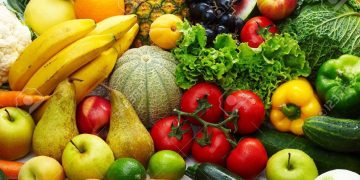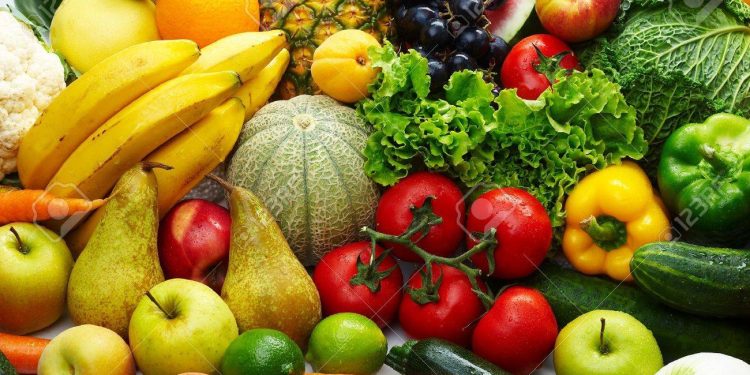Fruits and vegetables are a group of plant foods that must be consumed daily. These are one of the most significant groups in terms of assortment, with hundreds of different products. They contain a large number of trace elements, vitamins of various groups, dietary fiber.
For the most part, fruits and vegetables are low-calorie foods, but despite their undoubted benefits for the human body, due to the deficiency of essential amino acids (leucine and sulfur-containing) and low protein content, fruits and berries should not form the basis of the diet for a long time. nutrition.
Fruits and vegetables can be consumed both fresh and as part of complex dishes. It is preferable to season vegetable salads with natural unrefined vegetable oils, fruit and berry salads are best seasoned with fermented milk products (for example, natural yoghurts without added sugar). It is best to eat fruits and vegetables in their raw form – in this case, the loss of nutrients and vitamins is minimal (for example, ascorbic acid is easily destroyed during heat treatment of products).
Fruits and vegetables can be spoiled by fungi, bacteria and viruses. When buying, carefully inspect the product – traces of wilting, mold, rot, an unpleasant odor or excess moisture indicate a low quality and unsafe product. In addition to visible changes, fruits, berries, vegetables and greens can be contaminated with salmonella and listeria, yeast, helminth larvae, giardia cysts and other bacteria, viruses or parasites. Many berries and fruits are grown using mineral fertilizers and pesticides. But even wild berries and fruits can accumulate radionuclides and toxic elements (lead, arsenic, cadmium, mercury).
Try to buy fruits and vegetables in stationary retail outlets. In case of doubt, do not hesitate to demand documents confirming the quality and safety of the product, the seller is obliged to present them to you. When purchasing fruits and vegetables in markets and fairs, do not taste the products (for example, grapes or berries), because fruits and vegetables can only be eaten after thoroughly washing under running water to prevent the development of food poisoning.
It is necessary to thoroughly wash fruits and vegetables under running water for at least 5 minutes, if possible, soak them in clean water for at least an hour before washing. However, to ensure maximum safety, leafy vegetables and herbs intended for the preparation of cold snacks without further heat treatment are recommended to be washed with running water and soaked in a 3% acetic acid solution or 10% common salt solution for 10 minutes, followed by rinsing with running water and drying.
For fresh fruits and vegetables, the lowest part of the chamber is intended, as a rule, separated from the general part by transparent glass and equipped with special trays. It is not recommended to remove this glass shelf, as it allows you to maintain a certain humidity in the containers and thus helps to preserve the freshness of fruits and vegetables. Before laying, clean fruits and vegetables from the ground, wash, wipe with a dry cloth and put in plastic bags. Store the berries in a sealed container or plastic bags on the middle shelf. Ready-to-eat dishes of raw vegetables and herbs are recommended to be stored in the refrigerator at a temperature of +2 to +6°C for no more than 30 minutes. It is recommended to store vegetables and fruits in separate containers, while they should be regularly inspected and wiped off the condensate that has appeared on them; containers with a special lid that retains the necessary humidity are more convenient, with which, on the contrary, drops should not be wiped.
Fruits and vegetables that do not need to be stored in the refrigerator: pineapple, orange, watermelon, basil, eggplant, banana, pomegranate, grapefruit, ginger, lime, lemon, mango, cucumber, papaya, pepper, tomato, persimmon, apple. Naturally, this applies only to intact and uncut fruits. It is undesirable to put these vegetables and fruits in direct sunlight or near the stove.
In a dark cool place you can store onions, garlic, potatoes, pumpkin, zucchini, squash, shallots. The main thing is to have good air circulation.































